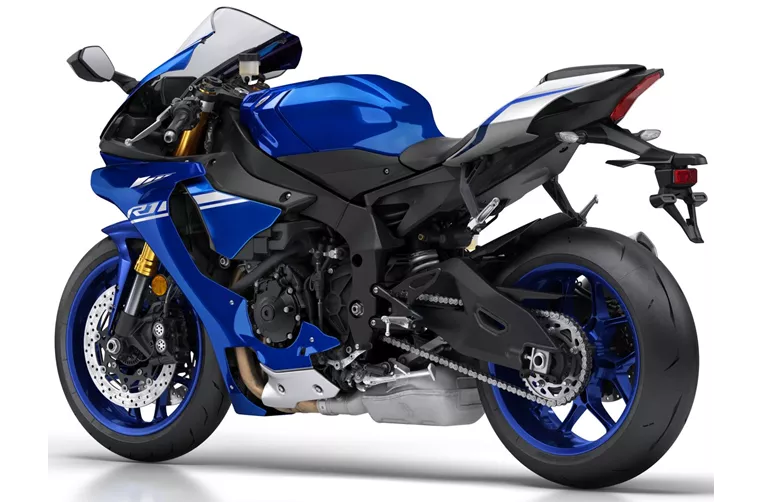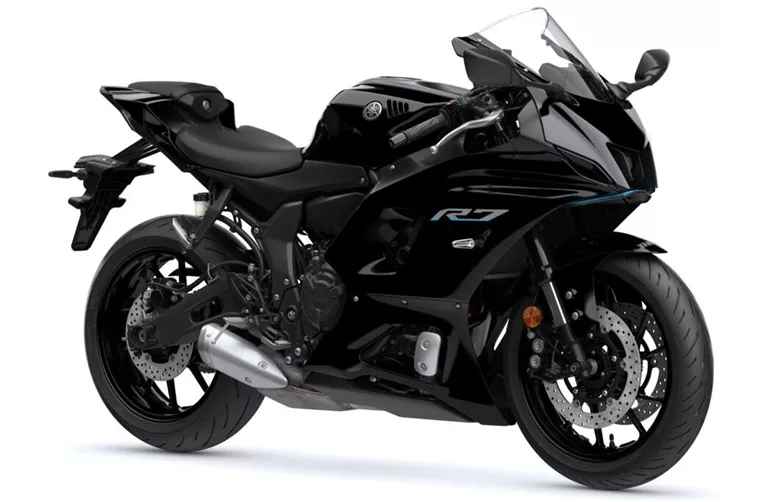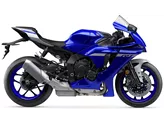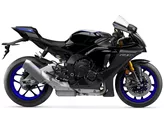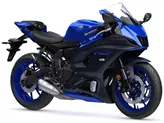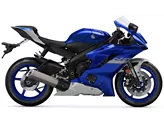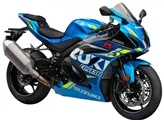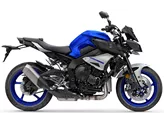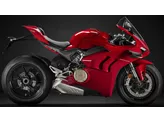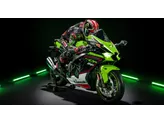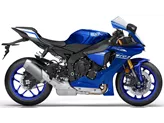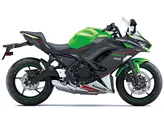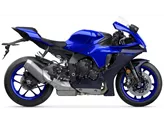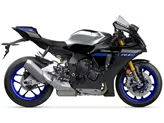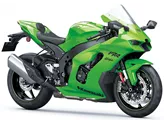Yamaha R1 2018 vs. Yamaha R7 2021
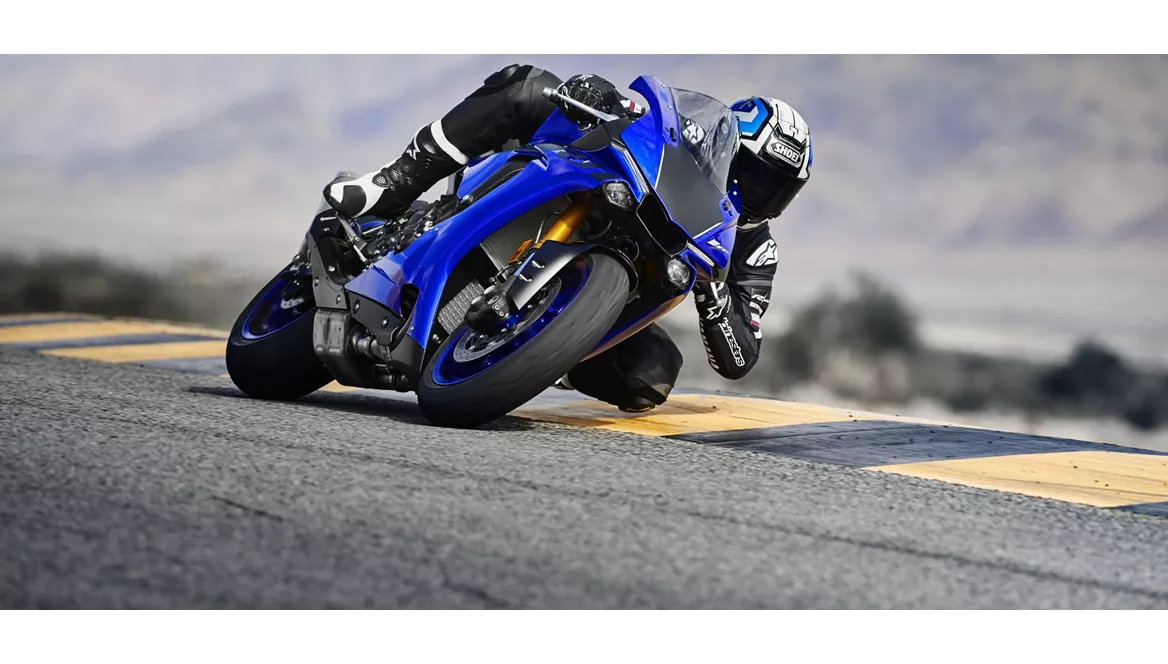
Yamaha R1 2018
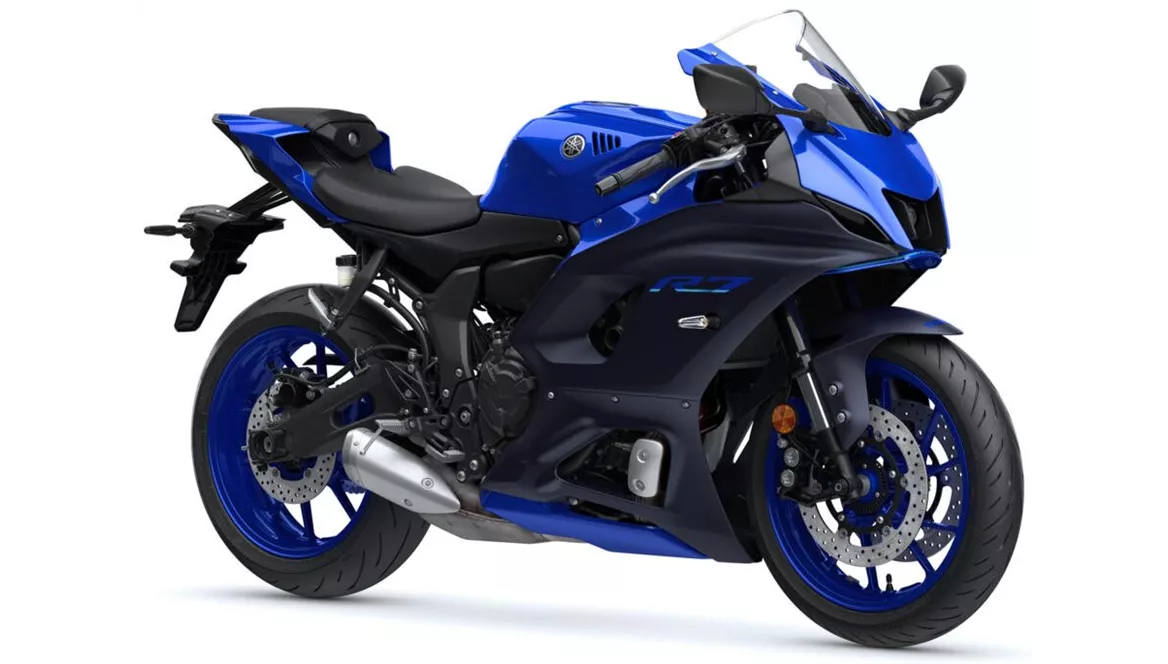
Yamaha R7 2021
Overview - Yamaha R1 2018 vs Yamaha R7 2021
The Yamaha R1 model year 2018 and the Yamaha R7 model year 2021 are both supersport motorcycles from Yamaha, but they have several differences in terms of technical specifications and strengths.
Starting with the engine and drive train, the Yamaha R1 2018 is equipped with a 998cc engine that produces 200 horsepower and 112.4 Nm of torque. It has a bore of 79 mm and a stroke of 50.9 mm, with a compression ratio of 13. The R1 has four cylinders with four valves per cylinder and features DOHC (Double Overhead Camshaft) technology. On the other hand, the Yamaha R7 2021 has a smaller 689cc engine that produces 73.4 horsepower and 67 Nm of torque. It has a slightly larger bore of 80 mm and stroke of 68.6 mm, with a compression ratio of 11.5. The R7 also has two cylinders with four valves per cylinder and features DOHC technology.
In terms of suspension, both motorcycles feature upside-down telescopic forks at the front. This provides excellent stability and control during high-speed riding and cornering. The chassis of the Yamaha R1 2018 is made of aluminum, which offers a lightweight and rigid structure, contributing to its excellent handling. On the other hand, the Yamaha R7 2021 has a steel frame, which may not be as lightweight as aluminum but still provides good stability and durability.
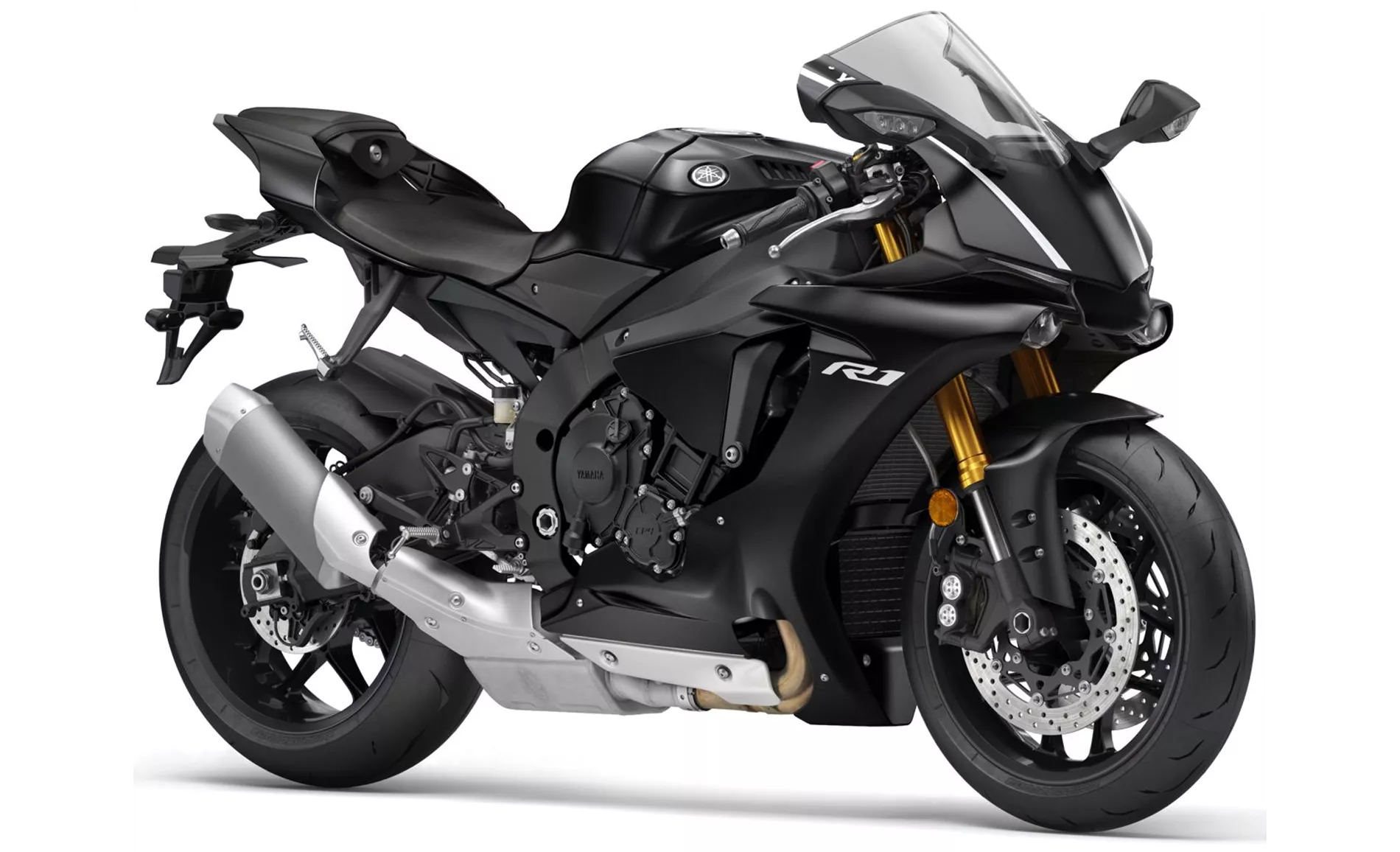
Yamaha R1 2018
Both motorcycles have double disc brakes at the front, ensuring powerful and reliable stopping power. The Yamaha R1 2018 comes with advanced rider assistance systems such as launch control and traction control, which enhance the overall performance and safety of the bike. The Yamaha R7 2021, on the other hand, is equipped with ABS (Anti-lock Braking System) as its advanced rider assistance system, providing additional safety during braking.
In terms of dimensions and weights, the Yamaha R1 2018 has a front tire width of 120 mm and a rear tire width of 190 mm, both with a diameter of 17 inches. It has a wheelbase of 1405 mm and a kerb weight of 199 kg with ABS. The fuel tank capacity is 17 liters. On the other hand, the Yamaha R7 2021 has a front tire width of 120 mm and a rear tire width of 180 mm, also with a diameter of 17 inches. It has a slightly shorter wheelbase of 1395 mm and a kerb weight of 188 kg with ABS. The fuel tank capacity is 13 liters.
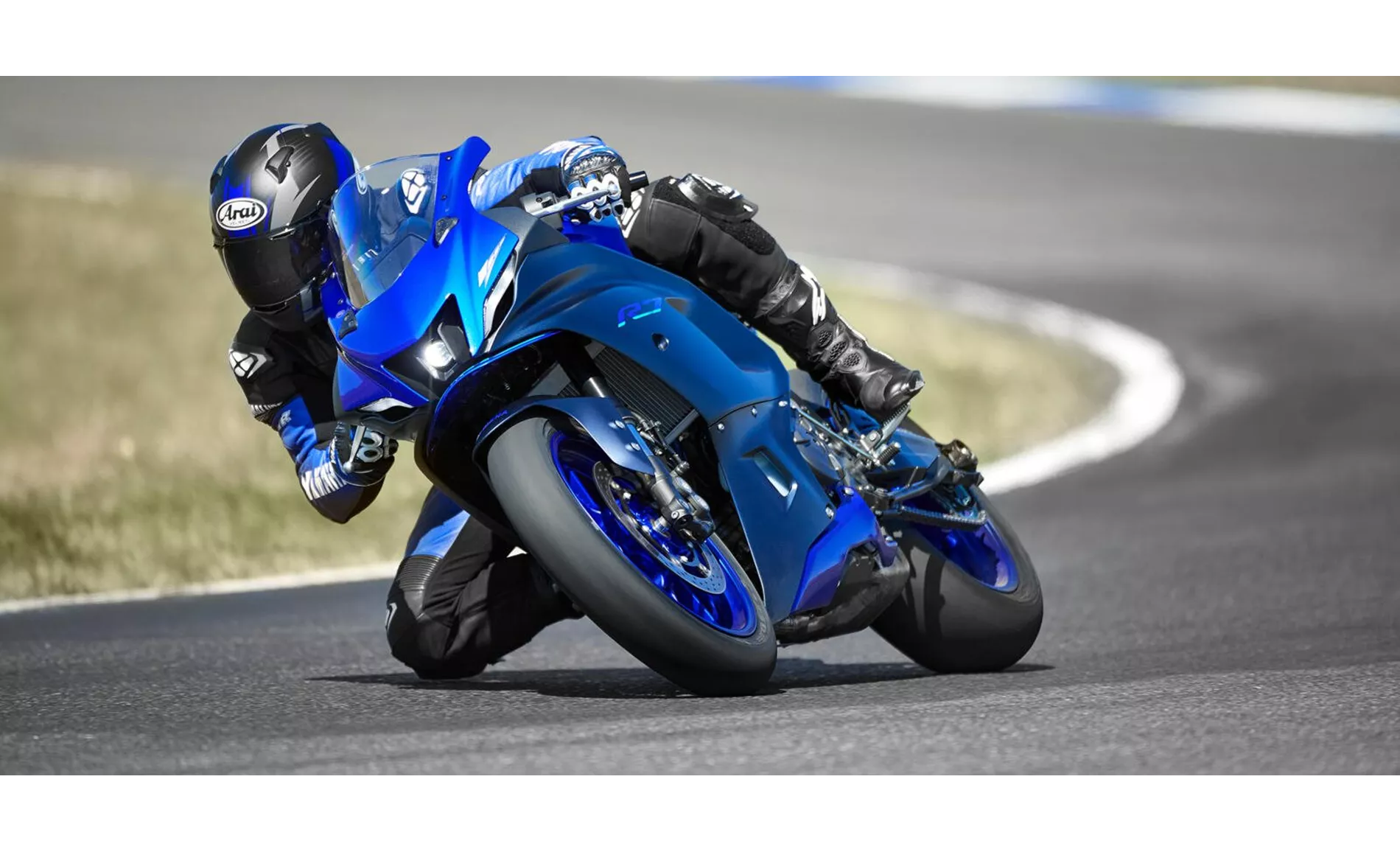
Yamaha R7 2021
In terms of strengths, the Yamaha R1 2018 is known for its very rev-happy engine, great sound, and terrific handling. It is a compact and radical machine that still offers great seating comfort. It is equipped with high-quality electronic equipment and features high-quality and noble components manufactured using the most modern methods. On the other hand, the Yamaha R7 2021 is praised for its high-torque CP2 engine, sporty riding position, and suspension set-up. It is considered a good entry-level trackday bike and comes with standard tires that provide good performance.
As for weaknesses, the Yamaha R1 2018 requires an agile driving style and may not be as comfortable for casual cruising. The Yamaha R7 2021 does not come with a quickshifter as standard, which could have been a nice addition for seamless gear shifts.
In conclusion, the Yamaha R1 2018 and the Yamaha R7 2021 are both impressive supersport motorcycles from Yamaha, but they cater to different preferences and riding styles. The R1 offers a more powerful and aggressive performance, while the R7 is more suitable for entry-level riders or those looking for a trackday bike. Ultimately, the choice between the two will depend on the rider's preferences and intended use of the motorcycle.
Technical Specifications Yamaha R1 2018 compared to Yamaha R7 2021
Pros and Cons in comparison
Pros and Cons in comparison
Yamaha R1 2018
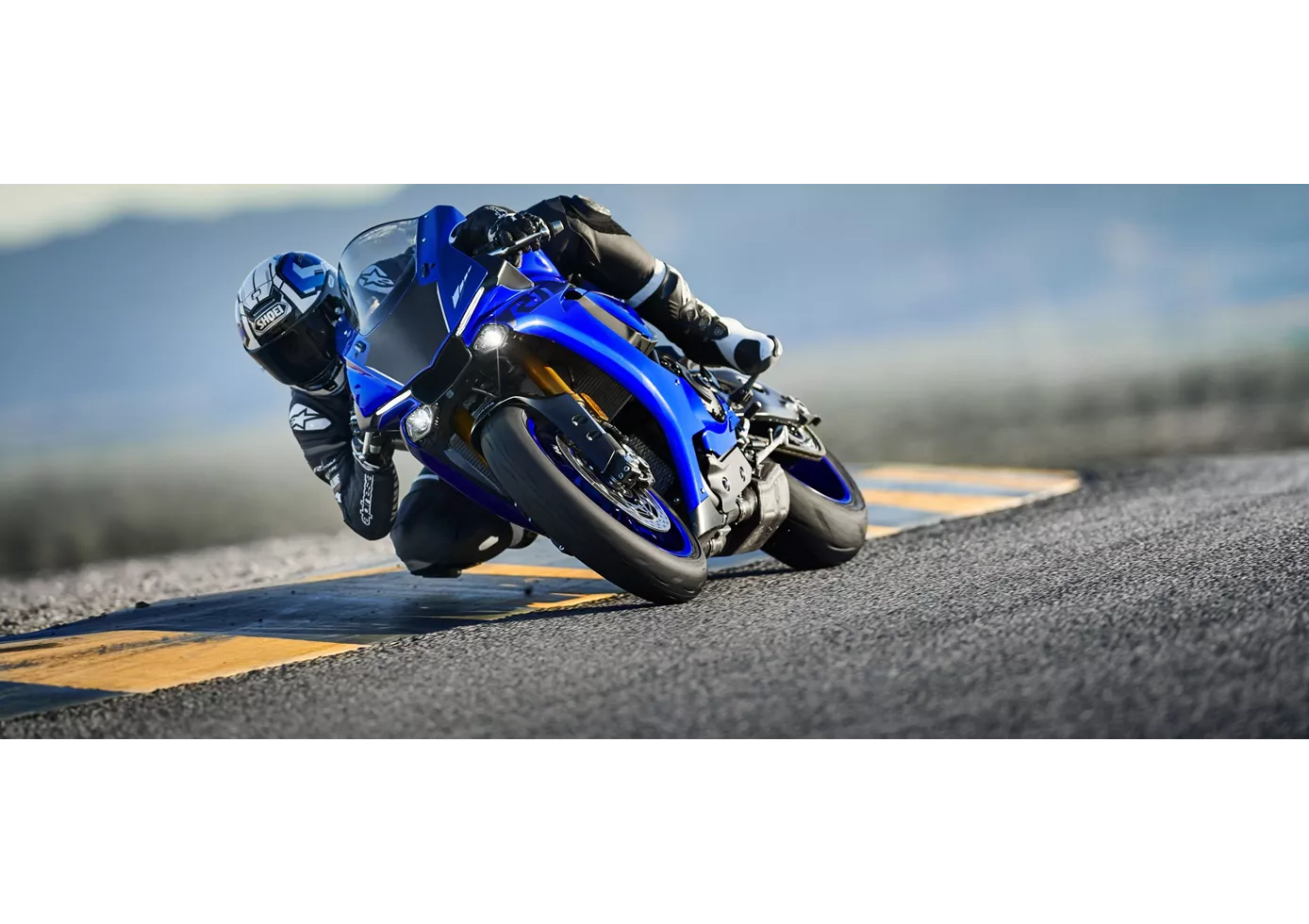
The Yamaha YZF-R1 is closer to a racing machine than ever before. The engine shines with lightness and agility. The seating position surprises positively and the handling is radical but still "suitable for the masses". The machine immediately stands out visually and also due to the heart-warming sound and is now 20 years after the first R1 the biggest milestone in R1 history.
Yamaha R7 2021
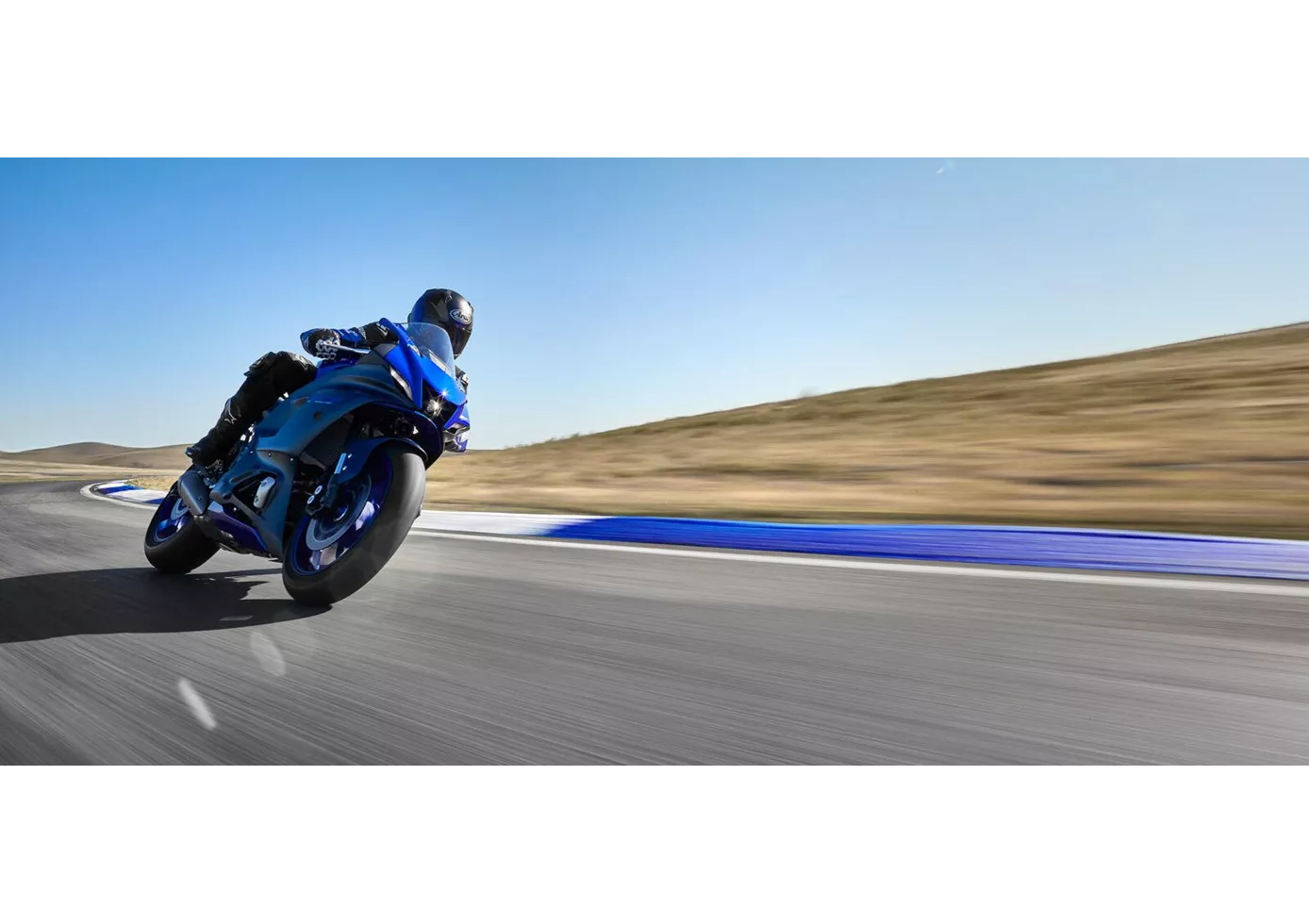
Despite the rather idiosyncratic combination of the sensible 73.4 hp mid-range power unit and the extremely aggressive, sporty look, the R7 is by no means a sheep in wolf's clothing. The performance, which is somewhere between the R3 and the R6, turned out to be much stronger in practice than the pure values on paper would suggest, and in terms of geometry, chassis, brakes and tyres, Yamaha's engineers have really done their homework. On top of that, the Yamaha R7 has all the qualities to have a lot of fun out-of-the-box on a compact race track like the Pannoniaring, for example, even without a big investment. But of course it feels better on the country road, and that's where it belongs in the first place, in our opinion. In view of the overall package, the purchase price is more than fairly priced - so it's not a problem that the quickshifter is not included and has to be purchased as an option.
Price Comparison Avarage Market Price Yamaha R1 vs Yamaha R7
There are a few key differences between a Yamaha R1 2018 and a Yamaha R7 2021. It takes less time to sell a Yamaha R1 with 52 days compared to 161 days for a Yamaha R7. Since model year 2005 1000PS.de editors have written 80 reviews for the Yamaha R1 and 9 reviews for the Yamaha R7 since model year 2021. The first review for the Yamaha R1 was published on 28/04/2003 and now has more than 3,900 views. This compares to more than 92,800 views for the first review on Yamaha R7 published on 18/05/2021.
